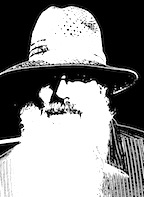“Yes, BIG BROTHER is watching, and listening, and tracking and…..”
The old man in the hat
 Bureaucracies are always thinking of ways to keep themselves relevant. They like to expand their sphere of influence and consolidate gains preferably by means of hard to change rules, regulations and laws. Great advantage was taken during the 9/11 attacks on the United States to establish “anti-terrorism” legislation, poorly examined by the normal checks and balances, and rushed into service, both in the United States and here in Canada. Everyone, of course, wants to feel safe and protected. Nevertheless, in a democracy, there is a fine balance between safety, on the one hand, and the intrusion of the state into our personal and private space, on the other hand.
Bureaucracies are always thinking of ways to keep themselves relevant. They like to expand their sphere of influence and consolidate gains preferably by means of hard to change rules, regulations and laws. Great advantage was taken during the 9/11 attacks on the United States to establish “anti-terrorism” legislation, poorly examined by the normal checks and balances, and rushed into service, both in the United States and here in Canada. Everyone, of course, wants to feel safe and protected. Nevertheless, in a democracy, there is a fine balance between safety, on the one hand, and the intrusion of the state into our personal and private space, on the other hand.
On June 6, we were informed by the Guardian newspaper in the UK, that the NSA (National Security Administration), an American security agency, had been requesting the phone records for ALL the phone traffic of Verizon, a large telecommunications firm based in the USA. One could perhaps justify the monitoring of an identified suspect or a suspicious group, but ALL? Better yet, the order was issued by the FISA (Foreign Intelligence Surveillance Act) court, with a secret judge, and with a gag order that prevented Verizon from telling anyone of the monitoring, on pain of imprisonment for the executives of the company. Why? It is a secret. Who? It is a secret.
Do governments need secrets? Sometimes it might be justified, in the right circumstances, providing that the process is properly monitored and supervised by publicly elected officials who are ultimately accountable to the public. War is one situation where this is possibly permissible. The enemy’s knowledge of strategy and troop movements would ultimately lead to our failure and defeat. Hence, the post 9/11 so-called “War on Terror”, that would appear to be permanent and without end. The important observation should be that “we”, the citizenry, have apparently become the enemy. This is scary.
Although we have largely, quietly, accepted the curtailments on our civil liberties as a price of fighting this War, is it a war, or is it “normal” criminal acts? In war, we face an immediate and potential threat to our continued survival as a society governed by its citizen within the confines of our boundaries. As such, we may temporarily suspend some of our privileges as citizens in order to protect the survival of the state. Is this our current situation? I am not so sure. My perception is that we have individuals who wish us ill and are willing to commit criminal acts against us. The key, I think, is the criminal part. Different set of rules. Different oversight. More importantly, in a criminal situation, I do not give up my rights and privileges as a member of our society. Accordingly, in the criminal situation, the government must have a good reason, not an unfettered open ended desire for a fishing expedition, to watch, listen and track my life.
For those of you who think, “Oh yeah, you know, it’s just the Americans”, should know that we have our very own Anti-Terrorist Act, passed December 18, 2001, allowing for ‘secret’ trials, pre-emptive detention and expansive security and surveillance powers. On June 11, the Globe and mail reported that our defence minister, Peter McKay, green lighted an updated data collection program for Canada in 2011. This is the minister with the good judgement to fly armed forces helicopters to fishing lodges for personal time. Scared yet?
For those of you who are interested there are a number of thought provoking literary and cinema works that explore the issue of citizen versus the state including George Orwell’s 1984, Arthur Koestler’s Darkness at Noon, Franz Kafka’s The Trial and Tom Cruise’s (really!) Minority Report.
These artistic works discuss issues such as the power of the state, the oppressiveness of bureaucracy, and the concept of pre-crime.
